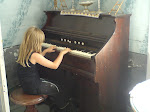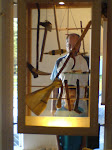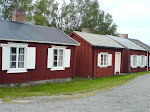I ledare idag skriver Göra Greider om ”När Astrid tog ställning” apropå boken om Astrid ”Ingen liten lort; Astrid Lindgren som opinionsbildare” av ett tiotal skribenter.
Greider skriver att detta nationalhelgon faktiskt var EU-motståndare, men när han googlar om detta så hittar han knappt något alls om det!
”När jag letar på Google efter någon referens till hennes ställningstagande, som kom de sista febriga veckorna före folkomröstningen 1994, går det nästan inte att hitta någonting. Men jag minns det. Jag tänkte att nu har Astrid talat. Nu händer något.
Det gjorde det inte. Ty denna gång var varken Expressen eller något annat större media intresserade av att marknadsföra hennes ställningstagande. Det passade inte in. Det var fel.”
Men hennes Pomperipossasaga 1976 eller uttalanden om djurskydd på 80-talet (från hösten 1985 och framåt) fick stort genomslag i media (se länk om detta nedan).
Greider skriver också: ”Som Bengt Göransson skriver: Hon talar alltid underifrån, är ’vanlig’, ett litet adjektiv som faktiskt är livsfarligt för makten.”
Samt att Astrid Lindgren använde ett språk som ”varenda jävel” förstod, vilket han tycker att alla tusentals redaktionsmedlemmar i OEI och Gläntan borde tänka på.
Greider skriver också:
”Astrid Lindgren gav Sverige, och rentav världen, ett moraliskt språk för barnens rättigheter som inte kom uppifrån och som inte var hallstämplat pedagogiskt.
I bidragen återkommer många till det tal Astrid Lindgren höll [året innan Sverige som första land i världen förbjöd barnaga] när hon tilldelades Den tyska bokhandelns fredspris. Där berättar hon om den unga mamman som, indoktrinerad med en gammal tids syn på barnuppfostran, bad sin lilla son gå ut i skogen för att hämta det ris hon skulle aga barnet med. ”Den lille pojken gick och var länge borta. Till sist kom han gråtande tillbaka och sa: ’Jag hittade inget ris, men här har du en sten som du kan kasta på mej.’ Då började mamman också gråta, för hon såg plötsligt alltihop med barnets ögon.”
” Talet hölls året innan Sveriges riksdag bestämde sig för att som första land i världen förbjuda barnaga. I sitt tal oroar sig Astrid för en återgång till en mer auktoritär barnuppfostran, för alla signaler hon hörde om behovet av ’stramare tyglar’ och ’hårdare tag’.”
Jag utvecklar detta nedan, på engelska.
-//-
In a leader this morning in a local newspaper it stood about Astrid Lindgren and her role as moulder of public opinion (opinionsbildare in Swedish).
A book about Astrid has recently come, with contributions from about some ten writers.
1976 she wrote a fairy-tale (saga) about Pomperipossa and the high taxes some had to pay here (At this time Ingmar Bergman also left
All the authors in the book also writes about a speech Lindgren held (1978) in Germany when she received an award there, where she told the story about a young mother who had asked her little son to go out into the forest and fetch a twitch she would use on him (to "have a taste of the birch rod", which she perhaps didn't say explicitly though??), indoctrinated as she had been with an old time’s authoritarian view on child-raising.
The little boy went out and was out for a long time. At last he came back home crying and gave his mother a stone saying “I didn’t find any twitch, but here is a stone you can throw on me!”
Then the mother also started crying, because suddenly she saw the whole situation with the child’s eyes.
The leader-writer thinks that Astrid Lindgren gave
He also thinks this story could be told to our school-minister of today (since September 2006), which talks about "harder grips" (a backlash many reacts against here and many also are for!!! And this seem to be a world wide "movement!!?? Why? Scary and horrible I think!).
After this speech a law came 1979 banning corporal punishment of children, where
Not until the end of the new book about Lindgren there stands that Lindgren was against EU, but strangely this didn’t become a big issue in media here!!! And when the leader-writer now has tried to find something about this on Google there is hardly anything! So this issue was "silenced" then 1994, when we had a popular vote (folkomröstning) if we should join EU or not. The yes-side won, but with small margins…
Again comes the topic what media chose to report and write about - and not…
The leader-writer writes. “But that is how it is with national-monuments: they are also there for hiding things”.
Another thing about Lindgren is that she wrote so everybody understood, she had that sort of language!!! She uses a sort of habitual, common language to say the most important with. Which is far from how many uses the language struck me – again!?? (You can use language as a power-tool too, and hasn’t Miller written about this: how professors can use a language so his/her students have to struggle enormously to decipher it!!!) And the leader-writer thinks people on editorial staffs should consider this… How they are writing, in what way…
And as a former culture-minister here writes: “She talks from under, is ‘common’, a small adjective which is highly dangerous for the power.”
Yes, so it is??? So it can be? (I see more connections here…)
And Greider, the leader-writer also writes about one difference in child- and adult-literature: child-literature you often read highly with a child, but adult-literature you read silently, which in the latter case means the reading is a thing between the reader and the text. Child-books can invade rooms, houses, street, meadows and Astrid Lindgren’s books invaded a whole society from the debut with Pippi Longstocking 1948 he writes and is something that can be and often is shared child-adult.
So here were many threads!!! About the media-reporting, language, communication, children’s (and animals) rights…
An addition: Lindgren got a son, out of marriage, when she was round 19... She had to travel to another place to give birth to this child... And had to leave him to foster care. This was a shame? So how was it actually? Lindgren has painted a very rosy and loving picture of her parents and her and her siblings upbringing... So I can't help wonder how it actually was if one would scratch on the surface??
But when Lindgren got married she took her son back... And she wasn't as mothers of that time was, no, she was out playing with her kids - for instance... She also got a daughter, Karin... Yes, Lindgren had a childlike mind her whole life... And maybe she was as Pippi Longstocking which never wanted to get grown up!???
PS. See Astrid Lindgren site in the link list to the left! This year it is 100 years since she was born... Why there comes articles etc. about her... We have a lot of beloved child-songs here written by her (with music by different musicians), which we, both children and grown ups, have sung for some decades now... I never get tired of them!! :-)
And also see the blogpost about what Freyd says about children’s rights. For instance:
"In this way, when we promote children’s rights we are promoting our own freedom."Oh, does this sound pretentious?? But these two things belong together I think!!!





























Inga kommentarer:
Skicka en kommentar